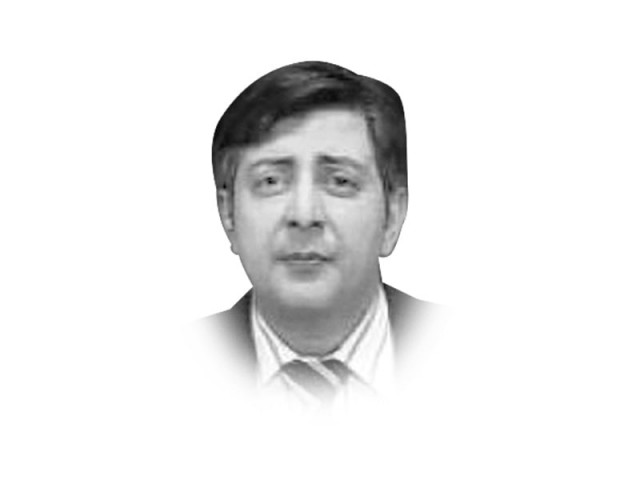Ghosts of Huntington
Unfortunately, during his dying days, Huntington sowed seeds of a conflict that is neither necessary nor inevitable.

The end of the Second World War could have given birth to an altogether different world order had Franklin Delano Roosevelt lived long enough. But he died, and along with the change of administration, came a ‘Long Telegram’ written by a George Kennan, a relatively junior diplomat stationed in Moscow. Kennan dug up the history of Tsarist Russia and the ideological orientation of a communist society in order to convince his administration that the USSR was the next big threat to the free world. In July 1947, he expanded his thesis in an article carried in Foreign Affairs magazine under the pseudonym ‘X’. He is duly acknowledged as the father of containment. Noam Chomsky in Deterring Democracy, on the other hand, informs us how the much-hyped Soviet threat was more imagined than real.
Similarly, when the Cold War concluded, the world expected progress towards the ideal of collective security. But Bernard Lewis’s piece titled “Roots of Muslim Rage”, which appeared in The Atlantic magazine, inspired Samuel Huntington to proclaim the advent of a clash of civilisations. Huntington’s article that also appeared in Foreign Affairs, borrowed Arnold J Toynbee’s reductionist definition of civilisation and using ancient and medieval history, nominated Islam and the Confucian civilisation as the next challenger to the West. Since then, his worldview has subconsciously been internalised by people on both sides of his demarcated fault lines. Unfortunately, during his dying days, Huntington sowed the seeds of a conflict that is neither necessary nor inevitable. However, while on one side, Western conservatives have done their best to prove him right, al Qaeda, Ikhwanul Muslimeen, the Taliban and their sympathisers have also helped to bring the West’s worst nightmares to life, through a coy use of Islamic eschatology.
And now, when Shakil Afridi’s purported interview has been carried by Fox News —another conservative establishment — it reminds one of Kennan’s whistle-blowing legacy. The headline says it all: “Jailed doc who helped nail Bin Laden warns Pakistan sees US as ‘worst enemy’”. And as if that was not enough, along came Muslim outrage over the video “Innocence of Muslims”. Granted, it is no Monty Python delicately handling a sensitive subject with its charming candour. The 15-minute clip, available on the Internet, is devoid of any humour and is laced with historical inaccuracies, very crude language and deliberate insults. Instead of free speech, it clearly falls under the purview of hate speech. But still, it is up to us to decide how to respond to it. If we react churlishly and without imagination, we risk proving the film-maker’s propaganda right and hence, commit blasphemy ourselves. The best reaction can be to prove the accuser wrong. The intellectual heat generated by Huntington’s work drowned many saner voices. Benjamin R Barber, for instance, wrote an interesting piece in the same era in the March edition of The Atlantic titled “Jihad versus McWorld”. Regardless of the terms he has coined, the core argument seems much more plausible than the aforementioned views. He claims that two forces operate simultaneously in the global scenario. One is a uniting force of technological advancement and ecological threat and the other one is trying to tear us asunder. While he claims that both forces work against democracy, it is imperative to remember what offers more hope for the people of the world.
If truth be told, the fault lies with Toynbee’s definition of civilisation. Faith and cosmological outlooks are important — actually, very important — in our part of the world, but they do not pose any serious threat to global integrity on their own. It is political use of religion that imperils us all. Toynbee’s definition, most likely devised for the comparative study of history, too, is now being employed for political purposes. The most cogent understanding of the word ‘civilisation’ can come only when seen through a biological prism. We are all human and constitute a single civilisation. There will always be people who try to divide us for their petty gains. It is, however, crucial that we stand united and work towards building bridges. The nature’s conspiracy of pitting each of us against the other for the sake of control over resources can only be overcome through the resourceful approach of finding and creating more. This, in itself, is not that difficult a task.
Published in The Express Tribune, October 5th, 2012.
Correction: An earlier version of the article incorrectly stated that “Jihad versus McWorld” was written by Malcolm Barber instead of Benjamin R Barber. The error has been rectified.














COMMENTS
Comments are moderated and generally will be posted if they are on-topic and not abusive.
For more information, please see our Comments FAQ